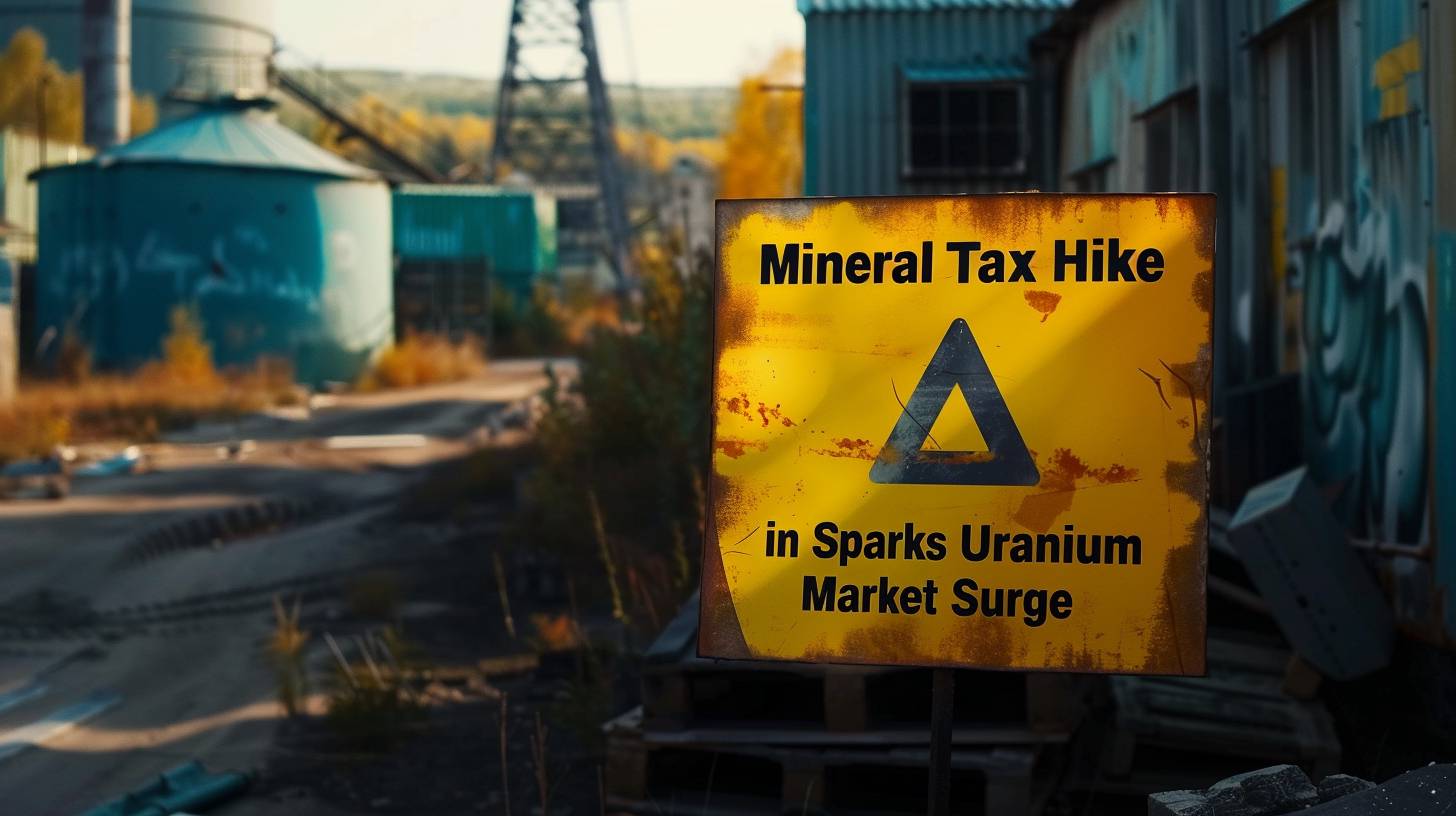
Changes in Kazakhstan’s tax regulations affect the uranium sector.
Recent changes to Kazakhstan’s tax code have significantly affected the global uranium market. The government has increased the mineral extraction tax (MET) on uranium, a decision anticipated to have a major impact on the industry. As the leading uranium producer worldwide, Kazakhstan’s policy adjustments carry considerable influence in the market.
Kazatomprom, the national atomic company and the world’s leading uranium producer, confirmed that the government will increase the Mineral Extraction Tax (MET). This tax increase is part of extensive tax code revisions designed to boost state earnings from mineral resources. It is expected that the new tax rates will impact production costs and subsequently the global market price of uranium.
The effects of this tax hike are complex. Higher production costs might cause a decrease in supply if producers decide that maintaining current output levels is not economically feasible. Conversely, the additional tax revenue could strengthen Kazakhstan’s economy, potentially resulting in more investments in the mining industry.
Industry experts are paying close attention to the situation, as the tax increase might cause a shift in market dynamics. Businesses that depend on Kazakhstani uranium might need to reevaluate their supply chains and cost structures. Furthermore, this change could generate interest in uranium projects in other areas, as investors look to reduce risks related to the new tax policy in Kazakhstan.
“The changes to Kazakhstan’s tax code are set to significantly impact the uranium market. This could lead to alterations in global supply chains and pricing frameworks,” stated a prominent industry expert.
The rise in MET is set to bring about both difficulties and prospects for the uranium sector. Stakeholders must manage these shifts with precision to sustain their competitive advantage in a swiftly changing market.
Market responses to Kazatomprom’s announcement
The news from Kazatomprom has led to swift and notable impacts on the uranium market. In response, uranium prices rose sharply due to investor expectations of more constrained supply conditions. This reaction highlights the essential position Kazakhstan holds in the worldwide uranium supply network.
Investors and traders have swiftly modified their positions, with a substantial number boosting their investments in uranium stocks. Firms with notable stakes in Kazakhstani uranium, like Cameco and Uranium Energy Corp, experienced significant increases in their share prices. This optimistic outlook suggests that the anticipated tax increase will drive up uranium prices, favoring producers outside Kazakhstan.
Experts in the market have observed that the price surge might continue if the tax hike results in a long-term decrease in uranium production in Kazakhstan. This possibility of supply interruptions has boosted interest in uranium ventures in other areas, notably Australia and Canada, which are regarded as dependable and steady suppliers of the energy metal.
“The market’s response to Kazatomprom’s announcement has been rapid and clear-cut. Investors are evidently anticipating a more constrained supply situation, potentially leading to higher uranium prices shortly,” observed a senior market strategist.
Moreover, the news has ignited fresh interest in uranium ETFs and mining stocks, leading to a surge in trading volumes as market participants adjust their portfolios. The increased activity indicates that investors are acutely aware of the potential for substantial price fluctuations following Kazakhstan’s tax policy changes.
Although the initial market response has been favorable for uranium prices, the long-term outcomes are still unclear. The reaction of Kazakhstani producers to the heightened MET and the ability of other uranium-producing nations to increase production to address any supply shortfalls will be crucial. At present, the market is experiencing volatility, with investors paying close attention to any new developments.

